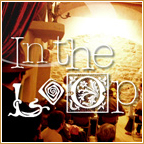ABC NEWS COMES UNDER FIRE FOR TABLOID STYLE DEBATE QUESTIONS
GUARDIAN BLOG CLASSES IT "WORST. DEBATE. EVER."
Two ABC News reporters were criticized for the quality of the debate questions they posed to the two senators competing for the Democratic nomination for the US presidency. Some critics have said the questions were reminiscent of the kind of exaggerations and innuendo typical of "character-assassination" campaigns waged by Republican operatives in other election cycles.
Demonstrators outside ABC-parent Disney's Burbank headquarters carrying signs reading "restore the Fourth Estate" implied the performance was part of an ongoing "dumbing down" of the American press.
Sen. Barack Obama was asked about whether he has personal ties to an individual linked to the Weather Underground, a 1960s radical group that had at times planted bombs. Obama had made the acquaintance of Bill Ayers in the process of community organizing in Chicago, hardly a sign of political weakness or poor judgment, much less an issue for public debate. At best, this sort of inquiry is a "juicy tidbit" for a one on one interview, not fodder for a serious intellectual debate on national issues.
Greg Mitchell wrote for the Huffington Post:
In perhaps the most embarrassing performance by the media in a major presidential debate in years. ABC News hosts Charles Gibson and George Stephanopolous focused mainly on trivial issues as Hillary Clinton and Barack Obama faced off in Philadelphia. They, and their network, should hang their collective heads in shame.
Will Bunch, a blogger for the Philadelphia Daily News, wrote "I am still angry at what I just witnessed, so angry that it's hard to even type accurately because my hands are shaking",adding "that was no way to promote democracy".
In a shocking revelation about how ABC News "crafted" the debate now decried as one of the worst examples of yellow journalism in modern TV history, Bunch reports the network actually sought out one video questioner directly, after having learned of her obsession with the "issue" of whether candidates "believe in the American flag". The network planted her as a character interrogator, playing to perhaps a specific demographic, or obsessively keeping to James Carville's 24-year-old riff on the industrial state with "Alabama" in the middle.
Hence Bunch classing the debate as a "travesty of a mockery of a sham of a presidential debate". The story here is that one of America's major news networks has sacrificed its respectability in a comprehensive and deliberate way in exchange for the opportunity to use a presidential debate forum as a petty tabloid smear chamber.





















